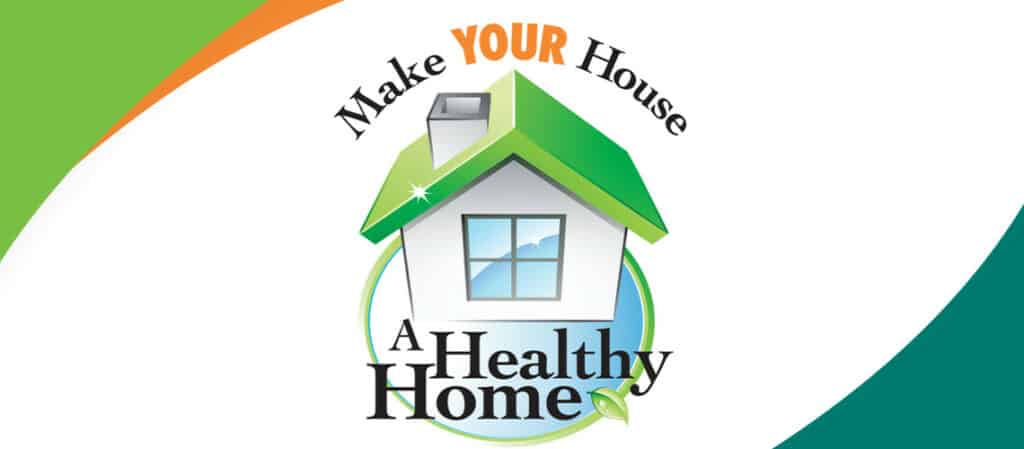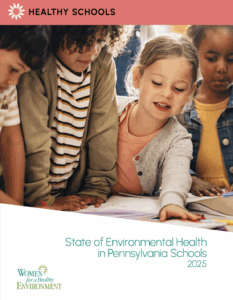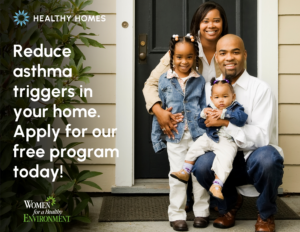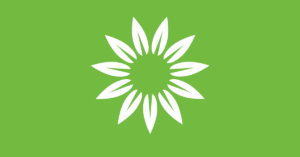Today we are joining other public health professionals during National Public Health Week 2020 and highlighting the impact of healthy housing, especially during this extended time at home!
Now, more than ever, we recognize how our home environment impacts our health. As many of us are spending all of our time in our home, we have to acknowledge how unhealthy housing, substandard living conditions, dangerous environmental exposures, equitable and affordable housing opportunities can impact a family’s ability to live, learn, grow and play. Poor air quality, lead paint and pipes, inadequate ventilation, pest infestations, water leaks and other hazardous conditions put people and families at higher risk for health problems like asthma, allergies, respiratory conditions and other chronic diseases. Moreover, these environmental and housing concerns are exacerbated in communities experiencing poverty, access issues, limited opportunities and resources, and even racism. We cannot create healthy environments for families to prosper, until we address the policy and equity issues at the forefront of this public health issue.
As an organization, Women for a Healthy Environment (WHE), advocates for policies to protect families from environmental hazards in the home and provides information, resources, tools and assistance to address these concerns. While these are unprecedented times and many of us are still figuring out how to react and respond to this crisis, WHE strives to provide information and tips on doing what you can to keep your home healthy and safe. While there are many systemic and structural factors that contribute to creating and maintaining a healthy home during this time, here are some things you can do:
- Take appropriate measures to prevent the spread of COVID-19; Follow CDC guidance for washing hands, cleaning and disinfecting. If you cannot purchase a ready-to-use disinfectant, refer to WHE’s Guide to Cleaning and Disinfecting and DIY Disinfectants.
- Minimize harmful exposures that can impact the air quality in your home;
Avoid using toxic chemicals and opt for safer cleaner products like hydrogen peroxide and refer to guides mentioned above.
Avoid air fresheners, paraffin candles and spray or plug-in products that can emit hazardous air.
Use proper ventilation when cooking, cleaning, painting and when doing other household maintenance and refer to WHE’s fact sheet on Indoor Air Quality and Health.
Check for mold in high moisture areas like basements and bathrooms and be sure to check for leaks around plumbing fixtures and windows. Keep humidity in your house below 45% and use exhaust fans when available. Here is a link to inexpensive humidity sensors to explore. - Limit the exposure of lead in your home if it was built before 1978;
If you are using this time to catch up on some home DIY projects, make sure you are doing them lead-safe and minimizing dust exposure.
Refer to the EPA guide to DIY lead-safe renovations for more information.
Do routine wet dusting and mopping near high risk areas like window sills, floors near windows and doors, and child play areas.
If you have a leaded pipe for your drinking water, be sure to filter your water with an NSF filter. If you do not have a filter, only use cold tap water for cooking and/or preparing formula.
If you started gardening in your spare time and are planting veggies, stick to raised garden beds if your soil has not been tested. For more info on lead refer to the Get the Lead Out, PGH site that WHE oversees and supports. - Make sure you have detectors and confirm they are functioning and operable.
Test each of your smoke detectors and make sure there is one placed on every level of the home.
Place carbon monoxide detectors on every level of the home, 5 feet from the floor, and near sleeping areas so they are loud enough to wake you in the middle of the night.
Alongside the tips and information listed above, there are utility assistance programs specific to COVID-19 and the link to Pennsylvania Utility Commission guidance on how to enroll for these programs is included here. Additionally, the United Way is a great resource to help navigate the different housing/community resources and fielding COVID-19 questions and can be reached by calling 211 or at this link.
Please continue to follow CDC and local health department guidelines to stay home, follow the tips and information on how to keep your home safe and healthy during this crisis and let’s all continue to advocate for safe, equitable, affordable and quality housing for all!
If you have any questions or want more information, please email hanna@womenforahealthyenvironment.org. Note that we are not in the office right now, so email is best!
References:
https://www.epa.gov/lead/renovation-repair-and-painting-program-do-it-yourselfers
https://www.epa.gov/sites/production/files/2014-05/documents/healthy_homes_brochure_english.pdf
https://www.nphw.org/nphw-2020/healthy-housing
https://www.cdc.gov/coronavirus/2019-ncov/prevent-getting-sick/disinfecting-your-home.html





